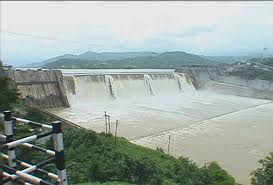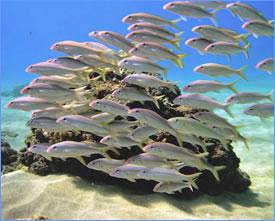/regions/india
India
Adaptive modelling of water-logged groundwater regime
Posted on 31 Dec, 2011 10:21 PMAuthor : Patmajum
15 tanks and 151 toilets built in 2011 to provide schools with water and sanitation': bRAINstorming
Posted on 30 Dec, 2011 02:34 PMArticle and Image Courtesy: International Rainwater Harvesting Alliance (IRHA)
The newsletter focuses on all activities concerning rainwater harvesting, the International Rainwater Harvesting Alliance (IRHA) and its partners. This issue summarizes work done during 2011.
First international advocacy planning meeting for water and sanitation activists'- 'WASH News and policy update
Posted on 30 Dec, 2011 12:31 PMContent courtesy: India WASH Forum
Alternative National Water Policy by Ramaswamy R Iyer - Comments by Rahul Banerjee
Posted on 28 Dec, 2011 02:24 PMGuest Post: Rahul Banerjee
Ramaswamy Iyer has made a commendable effort to draft a National Water Policy that tries to reform the current unsustainable approach to water resource management in this country (EPW Vol XLVI Nos 26&27 Supplement pp 201). Assuming that this draft is an invitation to a larger public debate on the issues involved I would like to make a few comments on it.
Life, livelihoods, ecosystems, culture: Entitlements and allocation of water for competing uses
Posted on 27 Dec, 2011 05:10 PM This report has been prepared by the members of the working group set up by the Forum for Policy Dialogue on Water Conflicts in India on the issue of “Entitlements and allocations for livelihoods and ecosystem needs". The introductory chapter sets out the context of the report. The immediate context is the work of the Forum over the last 4-5 years, and the learning that this particular issue leads to many water conflicts in India.
This report has been prepared by the members of the working group set up by the Forum for Policy Dialogue on Water Conflicts in India on the issue of “Entitlements and allocations for livelihoods and ecosystem needs". The introductory chapter sets out the context of the report. The immediate context is the work of the Forum over the last 4-5 years, and the learning that this particular issue leads to many water conflicts in India.
National action plan on climate change (NAPCC) and supporting mission documents (2008-11)
Posted on 24 Dec, 2011 11:46 PMThe National Action Plan on Climate Change (NAPCC) is a policy document prepared by the Prime Minister's Council on Climate Change. It has been prepared keeping in mind that India's economic need to tap its natural resources needs to be tempered with the need to maintain ecological balance.
CSE invites applications for Programme Director, India – Apply by December 16, 2011
Posted on 12 Dec, 2011 01:07 PMContent courtesy: DevNetJobsIndia

The Centre for Science and Environment (CSE), an established research and advocacy institute needs Senior Researchers for its programme on clean air and transportation, to do high quality policy and technical research, interact with policy makers, scientists & other target groups and develop networks and campaign.
Fishery statistics – A manual by Ministry of Statistics and Programme Implementation
Posted on 11 Dec, 2011 10:08 AM It has a ready to use reference guide on methodological aspects of data (metadata) based on harmonized concepts and methodologies that facilitate international comparison and help in aggregation of statistics to derive meaningful conclusions. The adoption of the methodology suggested in this manual will go a long way in facilitating data aggregation and data comparison both at intra-regional levels, including international levels.
It has a ready to use reference guide on methodological aspects of data (metadata) based on harmonized concepts and methodologies that facilitate international comparison and help in aggregation of statistics to derive meaningful conclusions. The adoption of the methodology suggested in this manual will go a long way in facilitating data aggregation and data comparison both at intra-regional levels, including international levels.
The section on both marine and inland fisheries consists of four chapters and appendices. Chapter I highlights the significance of the sector, need for statistical standards and development of statistical system of the sector. Concepts and definitions are placed in Chapter II. Chapter III presents sources of data and details of methodology being adopted for generating these data. Chapter IV conveys the suggestion for ensuring quality standards. Lastly, appendices include estimation methods, forms and schedules and major resources available in the Indian waters.
Water quality hot-spots in rivers of India: Comments by South Asia Network on Dams, Rivers & People, New Delhi
Posted on 30 Nov, 2011 04:54 PMThe Central Water Commission (CWC) has recently prepared a report on water quality scenario of our rivers and has evolved a methodology for identifying hot spots in Indian rivers. The water quality data is based on the average values observed during the last ten years (2001-2011) at 371 monitoring stations of CWC on almost all major, medium and minor rivers in India. Please find below a letter (dated November 5, 2011) from South Asia Network on Dams, Rivers & People, New Delhi to the Chairman, Central Water Commission stating its concerns regarding the report.
Status of groundwater quality in India - Report of the survey conducted in metropolitan areas by the CPCB
Posted on 24 Nov, 2011 05:36 PMThe report recognises that most groundwater quality problems are anthropogenic in origin, caused by a combination of over-exploitation and infiltration of wastes. Inadequate infrastructure and resources mean that waste generated by cities and industrial areas is not properly collected, treated and disposed, thus leading to grondwater contamination.